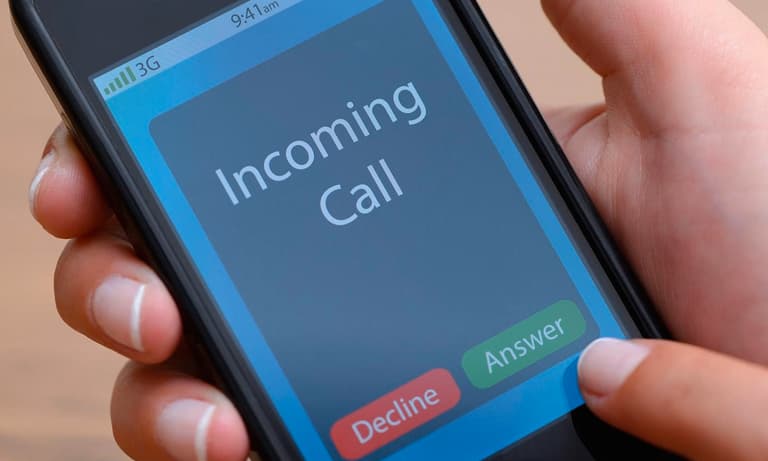
Have you ever called and left a voice message with someone only to receive the response, "Can I just text you?" It seems that ignoring phone calls has become the new normal in favor of texting. Yet, mobile usage continues to explode and has become an increasingly powerful tool for businesses' to connect with customers. By 2025, smartphone usage is expected to increase to 77% of the global population!
So, why do your contacts hate talking on the phone?
1) Generational shifts in technology
Don't worry; this isn't one of those Millennial-bashing articles. As a telecommunication company, we undoubtedly do a lot of business with them. Yet, Millennials seem to share a pure hatred for making and receiving phone calls to anyone, at any time- which is a bit ironic, because this generation is continuously using their phone.
Starting sometime around 2010, this shift in technology began to take place with the emergence of messaging apps like Facebook Messenger, iMessage, and WhatsApp. Suddenly there was a way to communicate without having to talk, and businesses began to take notes with the increased usage of short-code and SMS texting.
2) Preference for shorter communication
Texting is more convenient. It’s simple, it’s direct, and it’s instantaneous. It allows us to skip the small talk and get straight to the point. Even in business situations, texting is the preferred mode of connecting. SMS provides a record of the interaction, making it easy to reference should the need arise.
3) Texting allows us time to think
Unlike phone calls, texts can be opened immediately or at the contact's leisure. A text gives the recipient adequate time to think and reply appropriately. There is less pressure and more thoughtful interaction, or at least, this is the perception.
4) You can share other forms of data
Phone calls are solely limited to talking. But with texting, URLs and images (MMS) can also be sent. Being able to communicate with other forms of data all within one platform can feel like less work.
5) Excessive amount of unsolicited calls
Automated message spam is illegal, but that doesn't stop the scammers from sending out endless offers and services. According to the Federal Communications Commission (FCC), the company received 375,000 complaints about illegal robocalls in 2017 compared to 63,000 complaints in 2009. That's almost six times as many complaints! No wonder people don't want to pick up their phones.
When is it right to send a voice call?
While text messages are great, we’ve seen that people prefer to receive phone calls during a crisis. One of the main reasons is that you can deliver longer messages that require further explanation. At Text-Em-All, you can send up to a 2 minute recorded message or up to 640 characters in a text message.
Maybe even more important is the personal nature of a phone call. It’s comforting to recognize a person’s voice and easier to understand the emotion behind a message. Also, older generations tend to be more selective in the use of new and emerging technologies, and may only utilize landlines.
People have more ways to communicate in this digital age than ever before. Even though the trend is moving away from phone calls, and texting has become the new norm, both forms of communication can be useful when used appropriately. Automated calling and mass texting technology like Text-Em-All gives you a platform that is proven to generate more responses. More appointments are kept, and wasted time and miscommunication are minimized, sending value straight to the bottom line.












